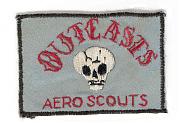So do you and the rest of the Herd...
However, I would qualify the combat in Afghanistan, as I did the earlier combat in Iraq, as just that. Combat. So was Viet Nam, mostly. Korea was a war before it runed into something less. Afghanistan combat is certainly, as you highlighted, real -- and it can kill individuals just as dead as WW II did. Just not as many or on the same scale...
Semantic quibble, perhaps but I base that combat versus war bit on the overall casualty rate. If infantry units in contact are receiving less than 2% or so casualties per day of actual contact, then I personally have difficulty calling that a war. YMMV and many will not agree; that's fine.
My Son who is on his third Afghan tour (plus one in Iraq to add a star to his first CIB from Desert Storm) said it well on the phone least weekend. After decrying the fact that a Valley his company had cleared three years ago had been reinfested and had seen no NATO or Afghan troops in over two years he started describing the changes to Kanadahar from his last trip (the garbage trucks and the new brick buildings fascinated him...) and ended with "I don't know what this is, Pop, but it's not war..."
So there's at least two who don't think it's a war -- certainly not a big one against a near peer. May all be my fault, I may have corrupted him...
Then again, I sometimes get lazy an call it a war; easier than this explanation...















Bookmarks